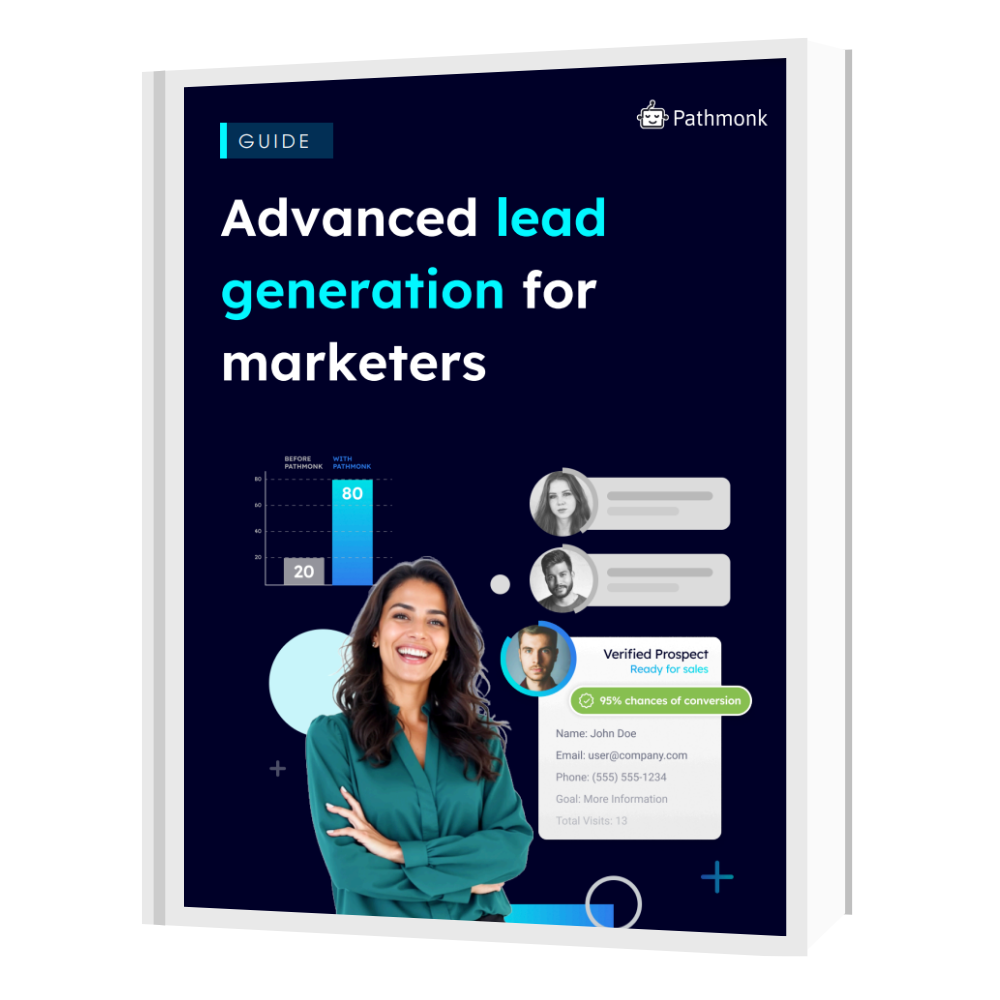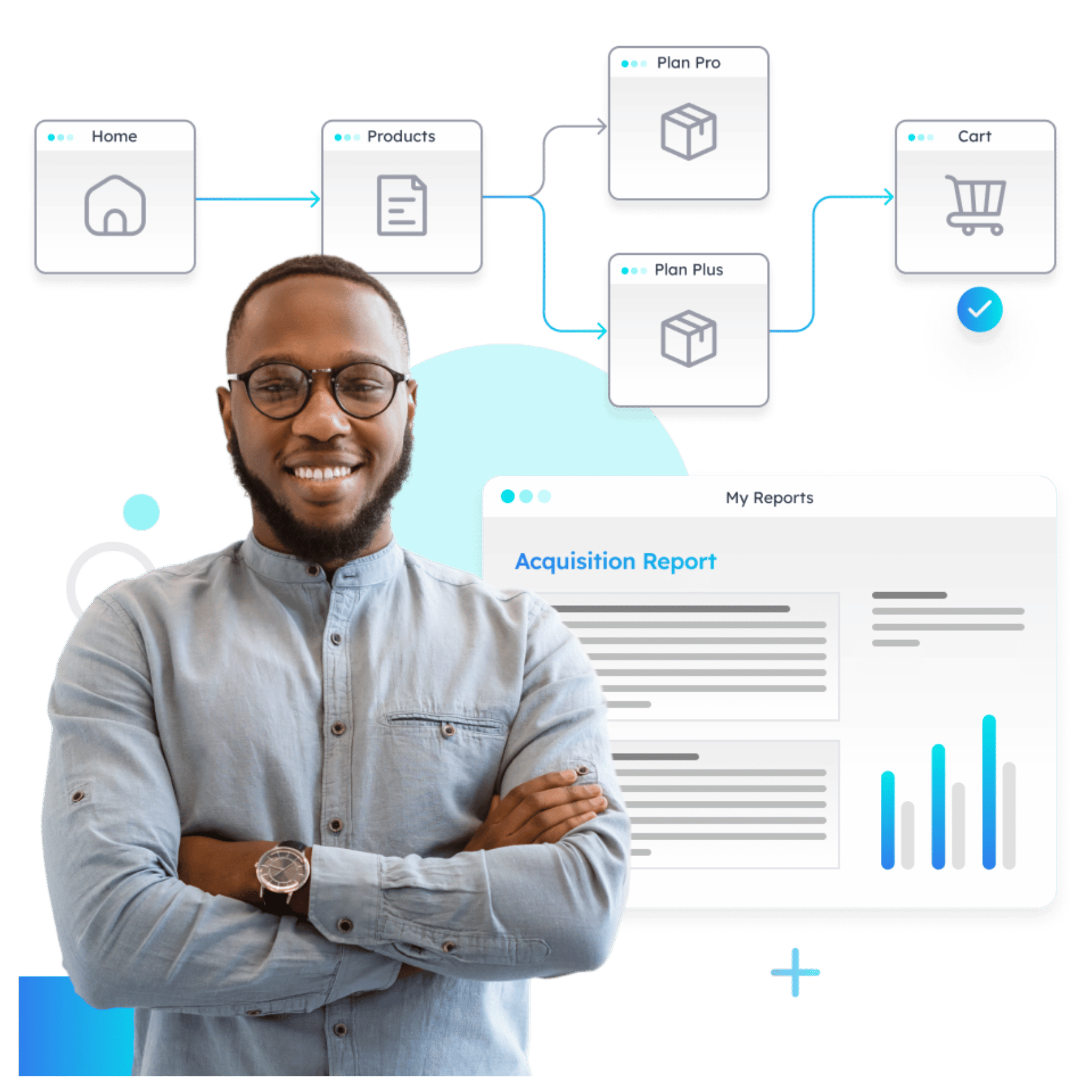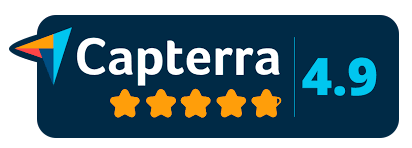
MEDDIC is a sales qualification framework that can be applied to nearly any sales process.
Let’s reiterate this distinction right up front. It is a qualification framework that combines with your sales methodologies. It is not a methodology in and of itself.
Why does this distinction matter?
The sales process involves discovery, messaging, how your technology/service/product goes to market, and a variety of other sales activities.
A qualification framework, on the other hand, is more of a guiding principle that helps shape these activities and keeps them focused on the most efficient way to close deals and get results.
MEDDIC can be an extremely effective sales tool, but you need to understand how it can most effectively combine with your normal sales processes.
Generate better leads to grow your sales
Discover new strategies to unlocking a flood of high-quality leads from your website.

What Do We Mean by “Qualification Framework”?
When we refer to MEDDIC as a qualification framework, we mean that it is an evaluation guide that the sales team can use to determine whether or not their prospect is likely to become a successful customer.
So, what do we mean by “successful customer”? This is different for every company, of course. In some cases, it may be defined as someone who makes a single purchase (at a significantly high level). Another would be a client that stays on board with the company for at least six months.
The goal of a lead qualification framework is simply to examine the characteristics of every prospect until you reduce the sales funnel to those prospects who are most likely to take the final steps toward a closed deal. It’s about determining whether it’s worth the effort to get a customer into the sales funnel and keep them there.
Defining MEDDIC
MEDDIC is an acronym for:
- Metrics
- Economic Buyer
- Decision Criteria
- Decision Process
- Identify Pain
- Champion
(Note that sometimes you’ll see the acronym written with an extra C: “MEDDICC”. In this case, the extra C stands for Competition, which is something any sales team needs to fully understand. Leaving it in or out of the acronym is simply a matter of how much you are already accounting for the competition in each of the other elements.)
Let’s take a look at these elements individually and see how they help discover the important details of a prospect and what questions to ask when using MEDDIC sales frameworks.
Metrics
Quantify the results that the client would call a success. Companies can have different metrics for success, including increased output, more efficiency, more cost savings, and, of course, more revenue.
These numbers should be economically quantifiable, or you won’t have any actionable data.
You need to know these numbers so you can pitch the customer with the right solution and show them EXACTLY how you can hit those numbers.
To get this number, you may ask questions like:
- How would you measure the overall success of the project?
- What methods would you use to track the progress?
Economic Buyer
Discover who, among all the stakeholders you are dealing with, has the final decision on the spending. It isn’t uncommon that your main contact isn’t the one in charge of the budget, so seek out and make sure that you are speaking directly to the decision makers because they can help you understand the metrics and how the decision-making process works with their stakeholders.
Start seeking this person out with some simple questions, like: “If we come to an agreement here, is there anyone else that will need to be involved to get final approval?”
Decision Criteria
This is a list of the factors that contribute to a company’s final decision. This can help you create a pitch that matches their exact needs and fits within the formal or informal criteria. Any number of factors can contribute to this, from potential returns to legal requirements to technical feasibility.
Questions to ask include how they calculate their ROI, whether there are regulatory compliance issues at hand, and what their budget looks like for these types of solutions.
Decision Process
This process describes how decisions are actually made within the company. It will include who is involved in the decision-making process, how quickly they act, and the approvals that need to be acquired.
These processes can prepare you for the times when communications go cold. You’ll know how to react to the silence, or how to respond to an overabundance of questions. There may be several factors between you and a closed sale, so try and discover them all.
So, be sure to ask which people are involved with this process, and if there is a sequential order in which all decisions have to be made. Will there be a longer process for larger deals? What do timelines usually look like?
Identify Pain
You need to know exactly what is causing your prospects a certain amount of pain before you can offer the right cure. If you’re constantly pushing a technology that will make paperwork flow easier when they really need something that will increase production, you aren’t going to get very far.
The more specific you can be about this, the more effective your pitch will be. Every company will experience different types of pain, from low ROI and slow production to difficulty managing staff and suppliers.
You can zero in on these pain points by asking what they believe is the root cause of the problem, what would happen if they did nothing about it, and how valuable a solution would be.
Champion
When you have someone on the inside of the prospect’s company supporting you and encouraging others to go with your solution, you have officially found a real champion. This could be the person who is most affected by the pain points described earlier or the person in charge of setting the sales methodology.
This person doesn’t need to be the decision maker, they just have to have enough responsibility and authority to be taken seriously when they make a recommendation.
How do you know if that person is a real champion? Ask yourself if you think they’ll stand up for your sales pitch when you’re not there. Will they directly benefit from your products or services? Can they effectively influence others in their company?
What Are the Benefits of MEDDIC?
The most obvious benefit of this framework is the ability qualify your leads to increase your closing rates when you pitch a product, technology, or service to a better-qualified customer.
There is, of course, more to it than that.
For example, in an extended sales process, there is a lot to learn and remember about each and every prospect in your sales funnel. The MEDDIC framework may seem like a simple checklist at first, but it can be a powerful tool for gathering all the information you need and putting it to good use.
It’s a process that relies on gaining detailed knowledge about what prospects really need, rather than using the old sales “trickery” to get an unqualified lead further through the process.
On top of that, the more you know about each individual prospect, the more accurately you’ll be able to forecast whether or not they are worth the time and effort to close the deal.
There are even some benefits to the customer, when you really get into it.
Not only are you not wasting your time, you won’t waste any of theirs on a product or service they don’t need or can’t fit into the current budget.
On the other hand, you might just uncover a specific pain point that the customer was not even aware of. Now you can help to address it in a new and effective way – providing even more benefit than you had originally planned.
Who Is It For?
The MEDDIC sales qualification framework is generally considered to be well-suited to enterprise sales organizations that get involved with complex deals that regularly involve entire departments, multiple stakeholders, and several rounds of negotiation.
To get more specific, when your product is going to be priced fairly high, or your clients will have to stay on board for a significant period of time, MEDDIC can be extremely helpful. Also, if the organization that buys your service or product is going to have to make significant changes in their own systems and methodologies, then this framework can be extremely beneficial.
Can You Automate the Qualification Process?
MEDDIC is a well-known, powerful framework from which a sales team can greatly benefit when it is combined with their established sales methodology.
Still, it is a lot of work to properly qualify every lead, but it is possible to automate many of these steps and start the qualification process early.
By using proven lead qualification tools, you can immediately determine if a prospect is really worth your time investment. You can identify potential deals, detect the buying intention of future customers, and qualify leads before even attempting a discovery call.
Understand your customer journey analytics
See how your users behave, find drop-offs, and receive actionable insights with AI.









